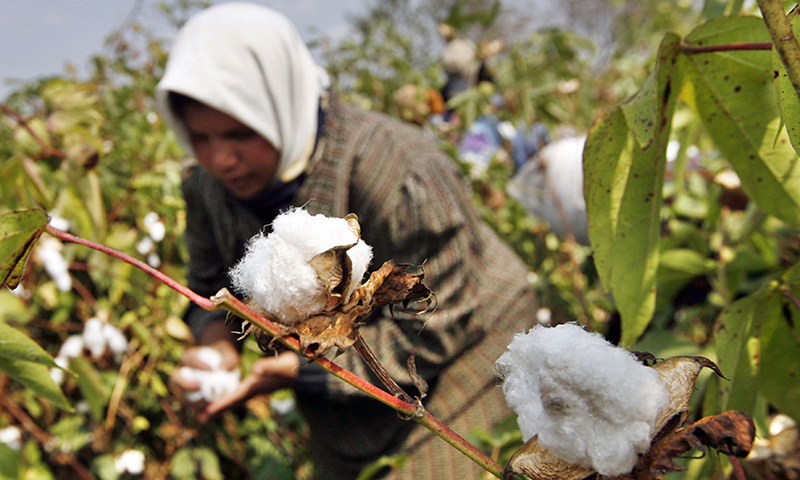KARACHI: The country spent $1.838 billion on cotton imports during nine months of the current fiscal year (9MFY21) — up 46 per cent — from $1.258bn in the same period a year ago.
The 9MFY21 lint imports surpassed the FY20 total cotton import bill of $1.704bn. Cotton import bill in FY19 was $1.65bn.
Meanwhile, sharp decline in cotton production — from over 14 million bales in 2012 to 5.6m bales this year — has shattered the hopes of the textile industry which was seeking to improve its performance.
Total exports during 9MFY21 increased by just $212m to $10.411bn compared to $10.269bn in the same period of FY20.
Brokers said the importers have booked 7m bales to import for the season that may last till September.
“Data collected from private sector importers is estimated at around 7m bales. In the absence of local cotton stock, the total import by the end of the current fiscal may be around $2.5bn to $3bn,” said Nasim Usman, Chairman of the Karachi Brokers Forum.
Recently, the Federation of Chambers of Commerce and Industry Pakistan (FPCCI) met Monsanto and Bayer Crop Science Regulatory team to get latest seed technology which boosted Indian cotton production from 10m bales to 40m bales. Despite the Covid-19 pandemic which has is devastating India, the country managed to produce about 36m bales.
Pakistan’s per acre yield is not even 25pc compared to India.
Meanwhile, China-Pakistan Economic Corridor (CPEC) Authority chairman Asim Bajwa has recently said that Pakistan is making efforts to produce cotton in Balochistan with the help of China. He said the Chinese are interested in producing cotton in unused lands.
The government has set 10.5m bales target for the current season. However, cotton brokers suggest that production would be around 8m bales – provided that pests attack and untimely rains do not hit the crops like previous year.
Importers were willing to import cotton from India but both the spinners and ginners strongly opposed the idea.
Dr Jesu Mal while representing ginners said cotton crop will disappear in the country if Indian cotton imports are allowed as growers would not go for sowing of cotton.
The growers, ginners, spinners and cotton brokers supported the government’s decision not to allow import of cotton from India despite it being suggested by the Economic Coordination Committee.
Only the value-added sector was on frontline demanding import of cotton yarn from India. The government removed all kind of duties on import of cotton yarn but did not allow import from India. Due to shortage of cotton production, cotton yarn became costlier which forced the value-added sector to buy imported yarn at a cheaper price, with duty-free imports facilitating the valued-added sector.
Published in Dawn, May 11th, 2021














































